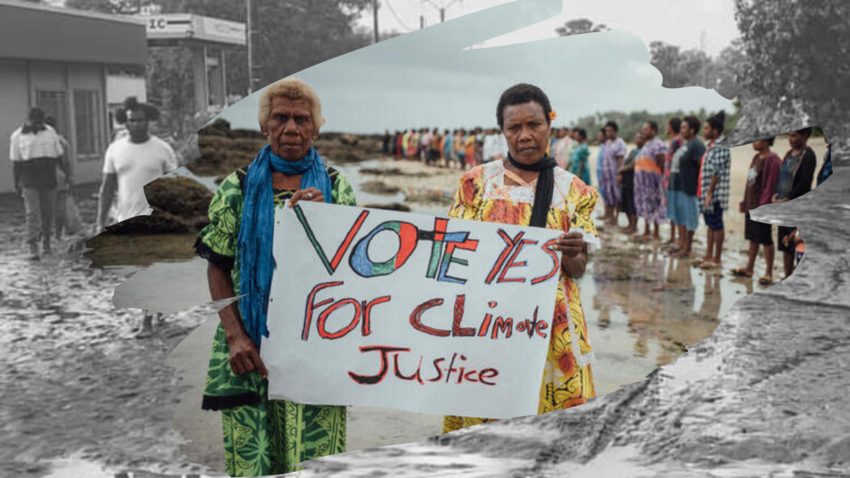The islands devastated by Climate Change while leading it's Charge on Justice

2023 so far has been another year our global climate reality has hit us hard.
The Auckland floods, Cyclone Gabrielle, snow in California, the storm in Brazil and climate disasters popping up around the world. Average citizens are coming to the reality that climate change is not only threat to peoples futures but a crisis of the present.

Vanuatu in a span of a week experienced two cyclones and a magnitude 6.6 earthquake. Cyclones that would normally occur once every few years has now devastated the islands twice, only days apart. Villages left without power, homes completely destroyed, roads ripped up and people left displaced. This is not a new occurrence for a nation like Vanuatu. They have been fighting climate change for the past decade, including restoring the island after 2015's Cyclone Pam.
Former Prime Minister of Vanuatu Alatoi Ishmael Kalsakausaid said in an interview, “Vanuatu is out of time. We are doing all we can, yet losing this battle for which we are not responsible. There must be some accountability for the significant harm now being experienced by vulnerable people across the globe.”

What does that accountability look like? The island nation is leading a coalition of more than 100 countries seeking an Advisory Opinion on Climate Change from the International Court of Justice. Taking the issue of climate inaction to the highest court in the world. This idea to use Internation Law to prompt action began as a class exercise by environmental law students at Vanuatu’s University of the South Pacific. What began in a classroom in Port Vila has now reached the offices of more than 105 nations who have formed a coalition of support.
Vanuatu did not stop there. They also became the first nation-state to call for an international mechanism to stop the expansion of all new fossil fuel projects feeding the climate crisis. President Nikenike Vurobaravu in his announcement said: “Every day we are experiencing more debilitating consequences of the climate crisis. Fundamental human rights are being violated, and we are measuring climate change not in degrees of Celsius or tons of carbon, but in human lives”.


Although Vanuatu is currently experiencing devastating frontline impacts of climate change they are not just victims to this reality. Their leadership has proven that they are proactive trailblazers in the flight against the global environmental crisis.
For the past decades the Pacific islands have been warning the rest of the world of what was to come for them. Taking by force the position of “canary in the coal mine”. The world would hear the Pacific speak of a future that they would not wish on the rest of the planet. Now as cities flood the world is waking up to the warning of their island neighbours. Over the decade the Pacific has also cemented that they are not just the worlds cautionary tale, but they hold the resilience the world could learn from. Vanuatu is a prime example of this resilience and fight.
In the break between the two cyclones the Vanuatu community were out in their villages fixing what they could and re-preparing themselves for the next hit. Their villages hold wisdom around disaster readiness and stories from the ground showed that their resilience was in practice. The type of disaster readiness that many in Auckland weeks prior felt like they didnt have when hit with damaging floods. Proving that the islands have many lessons they can teach our cities about preparing and adapting to climate induced disasters.
The Pacific also paints the picture that a sustainable environment is not a utopian future but an indigenous past. Pacific culture and people have lived in harmony with nature, and in their efforts to face climate change have used these values to spearhead climate adaptation projects.
The beginning of 2023 has kicked of the year with climate disaster and hopefully this will catalyze the rest of the year to be a time of climate action.
-
Cover Photo: Steven Lilo/Greenpeace
